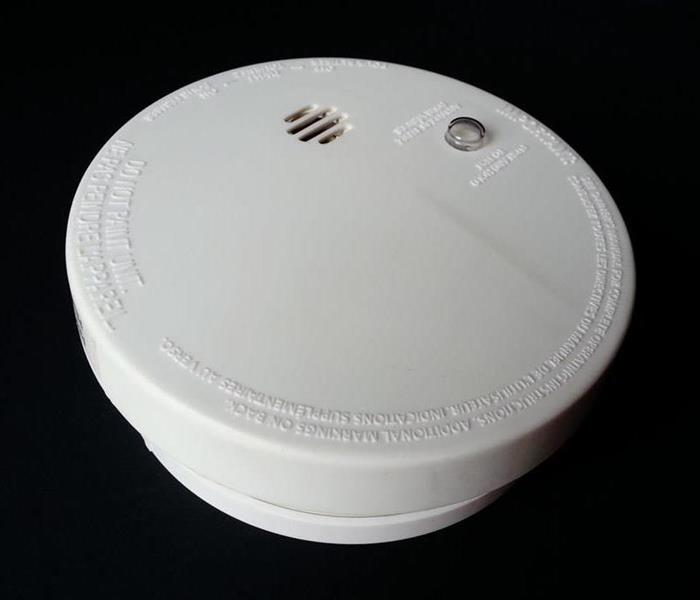Smoke Alarm FAQs
6/23/2017 (Permalink)
 Properly installed and regularly tested smoke alarms can save your family in the event of an emergency.
Properly installed and regularly tested smoke alarms can save your family in the event of an emergency.
The National Fire Protection Association (NFPA) claims that three out of every five fire deaths occur in a home without working smoke alarms. Properly installed and regularly tested smoke alarms can save your family in the event of an emergency. Have you ever wondered how often you need to replace and test your alarms? Use this guide to help keep your home and family safe.
Where Should I Place Smoke Alarms?
Because homes are filled with more manmade materials than in years past, fires can move more quickly through homes. It’s important to install enough alarms to give your family as much time as possible to get to safety in the event of a fire.
At a minimum, you should install smoke alarms on every level of your home (including attics, basements, and garages), in every sleeping area, and outside every sleeping area. Other important locations include the top and bottom of stairways and utility rooms.
How Often Should I Test Smoke Alarms?
Test all your smoke alarms monthly. Alarms are loud, and the noise will be less likely to scare children if they know when it’s going to happen. Make it a family event so your children will understand the importance of testing smoke alarms.
Make sure to dust or vacuum the alarm when you test it to keep it in top-working condition.
When you’re ready to test the alarm, strategically place a family member at the furthest point in the house away from the alarm you are testing. You want to make sure people can hear the alarm from anywhere.
Check the manufacturer’s instructions for testing the alarm, but most detectors have a button you can use for testing. Simply press and hold the alarm until you hear it go off. If you don’t hear an alarm, or if it sounds muted and weak, it’s time to replace the batteries.
How Often Should I Replace Batteries in Smoke Alarms?
You should replace batteries every six months even if the alarm passes the test. However, some circumstances warrant more frequent replacements.
- If your alarm frequently goes off because of smoke while cooking, the batteries will drain faster.
- If the detector gives out frequent false alarms or short beeps without being touched, the batteries likely need to be replaced.
After replacing the batteries, don’t forget to test the alarm to make sure it’s working.
Remember—under no circumstances should you take out and use the batteries for other devices in the home, like remote controls. Even if you’re sure you’ll remember to replace the batteries later, you run the risk of forgetting and putting your home in danger.
When Should I Replace Smoke Alarms?
The NFPA recommends replacing smoke alarms 10 years after the date of manufacture on the back of the alarm even if the alarm is still working. However, if an alarm does not respond to a test after installing fresh batteries, replace it sooner.
Per the American Red Cross, if all homes had working smoke alarms, around 890 lives could be saved every year. Smoke alarms can also help limit the damage done to homes by fires. If your home experiences a fire, please reach out to SERVPRO® of North Everett/ Lake Stevens/ Monroe.
We have the knowledge and experience necessary to determine the extent of fire and smoke damage and repair your home so it is “Like it never even happened.” It’s important to start mitigating the damage as soon as possible after a fire, so we offer 24/7 emergency service. Give us a call anytime at 360-243-8313.






 24/7 Emergency Service
24/7 Emergency Service